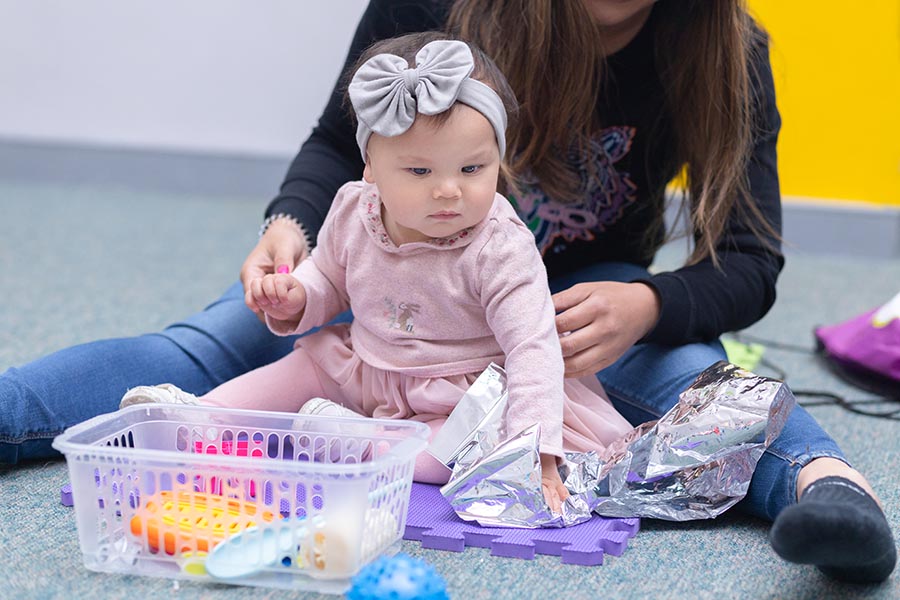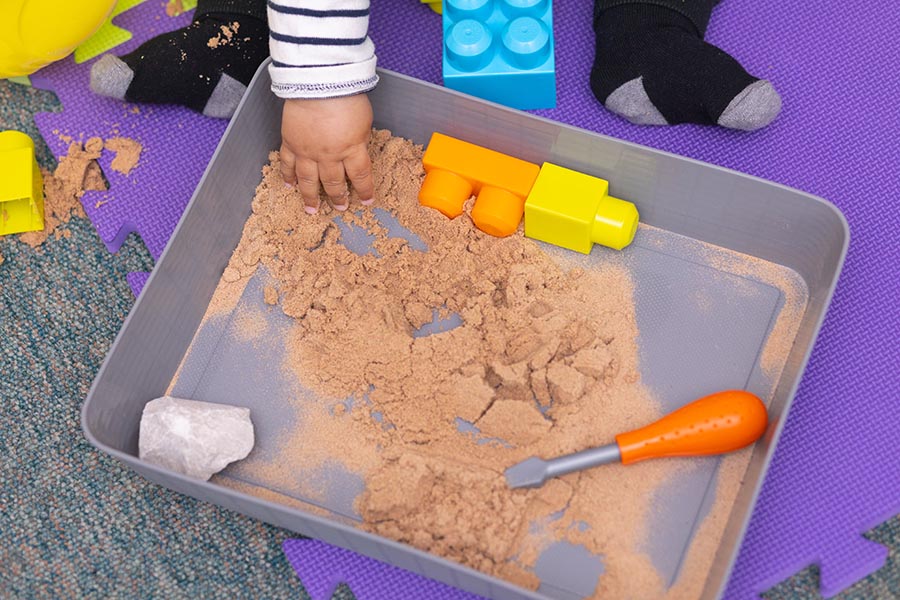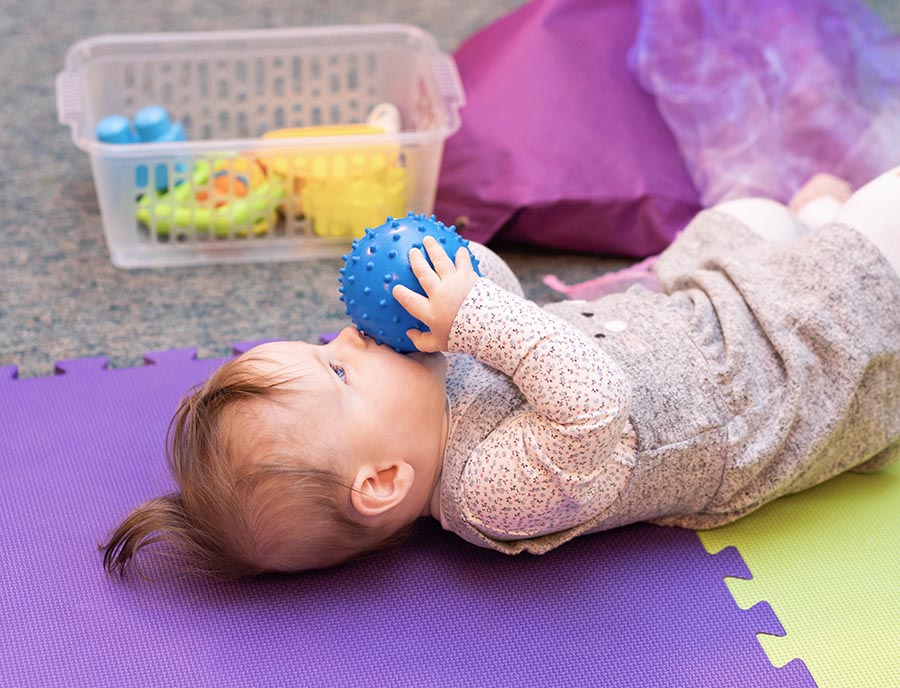
The longer we can allow children to grow and learn through play the better. All too soon you
will be waving them off as they start school and embark on the more academic side of
learning, but before that journey starts for them, there is much that you can do to help
them develop. Play, and more specifically sensory play, can provide huge benefits early on
in your child’s life.
It is easy to become too focussed on milestones and what our children should and shouldn’t
be doing, and even comparing how one child is performing in relation to another, but
becoming too fixed on those things can be detrimental. If, however, you take the time to
allow your baby to explore through sensory play then you can still help them to reach those
milestones but you can do it through fun activities that not only encourage baby
development but also help you to develop a deeper bond with your baby.
What is sensory play and why is it important?
Children learn through play, they develop language skills, they start to learn social etiquette,
and they learn what they are capable of. They also learn about the environment around
them, they learn decision making skills, they learn about action and consequence, they learn
about inclusion, they develop resilience and so much more. By providing lots of opportunity
for play led activities we can help their development and at the same time encourage their
independence.
Sensory play is any activity that stimulates one, or more, of your child’s senses – sight,
hearing, touch, taste, smell – and a great sensory play session will often trigger more than
one ‘sense’ at a time. Think about things like messy play, your baby might be playing with
colourful sand, pasta, or play doh, triggering both touch and sight and, in some cases, it may
also be infused with smells. Although sensory play might be a new term that you haven’t
previously heard of, you will likely find that you have been engaging in sensory play without
realising.

How Does Sensory Play Help?
Physical Development
Honestly, the benefits of play on physical development are so numerous that it is hard to list
them all. So instead, here are some of the key ones so that you can start to understand just
how valuable play time is for young children.
Coordination
Balance
Gross-motor skills
Fine-motor skills
Awareness of self
Develop healthy habits towards being active
Intellectual Development
Learning can be incorporated into every aspect of sensory play and because it is based in
play it is fun to do and never becomes a chore. Fun sessions, either done independently or
with adult guidance whilst at a young age, can help children to learn in a way that keeps
them engaged and interested. The key here is that learning doesn’t have to be boring, it is
more than possible to broaden your child’s knowledge and their skills as they play.
Developing their imagination and self-awareness
Counting skills
Language skills
Recognising colours and shapes
Problem solving and reasoning
Following longer chain instructions
Here at Bloom Baby Classes we run a range of classes for babies six weeks to six months and six
months to mobile. You can check them out via our website or get in touch if you have any
questions. With several franchises across the UK, we hope you can find a class to suit your
needs.

Emotional Development
Although we are born with the ability to experience and exhibit a range of emotions, our
depth and understanding of these only grows over time and through a range of experiences.
Some children will learn and develop at a faster rate and will be able to manage their
emotions and express themselves clearly from a young age, others will take more time, but
all of them will need our support and guidance. Sensory play and in particular role play can
be a fantastic way to support emotional development. Reaching new milestones and
experiencing new feelings and emotions can be a scary time for young children but sensory
play can be used to help support and bring understanding as these new emotions unfold.
Role play to explore different emotions
The joy and happiness of winning
Sadness and frustration at losing
Developing resilience
Developing problem solving skills
Developing empathy towards others
This outlines just a few of the ways that sensory play can support your child’s development.
There are lots of games and fun activities that you can do at home but there are also a range
of classes that you can join so that you have structured and supported activities but also so
that your child can gain the benefit of socialising with other children of a similar age.
